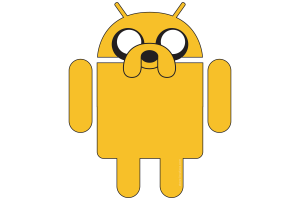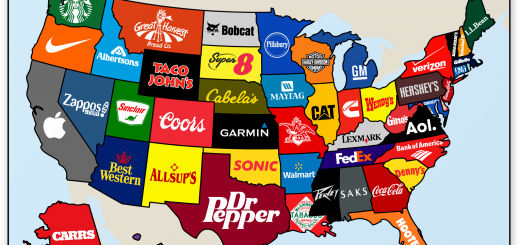The Future of Android
 Android is the most popular operating system for phones and tablets. It might not seem that way when your hanging out at Starbucks, but it beats out Apple’s iOS in terms of sheer numbers. This makes sense. Even though Apple products are insanely popular, Android runs on a variety of hardware while iOS is limited to Apple devices. (In many ways, this mimics Microsoft Windows’ position on the PC market. No matter how many Macs you see at the coffee shop, Windows is the workhorse of the business world.) Android will likely play a big role in the future of computing, so the question is, what will that future look like?
Android is the most popular operating system for phones and tablets. It might not seem that way when your hanging out at Starbucks, but it beats out Apple’s iOS in terms of sheer numbers. This makes sense. Even though Apple products are insanely popular, Android runs on a variety of hardware while iOS is limited to Apple devices. (In many ways, this mimics Microsoft Windows’ position on the PC market. No matter how many Macs you see at the coffee shop, Windows is the workhorse of the business world.) Android will likely play a big role in the future of computing, so the question is, what will that future look like?
An Open Source Project
Unlike Windows or iOS, Android is not owned by one company. Google is behind the platform, but the software itself sits atop an open source Linux kernel and developed by a trade organization called the Open Handset Alliance. In addition, the user interface is often customized and replaced by handset manufacturers. That means that, unlike Windows, there is no single force behind the operating system’s evolution. There is no Microsoft pushing a single interface. The operating system is fragmented, and this makes its future hard to predict.
Android Fragmentation
What do I mean when I say that Android is fragmented? Because the operating system is “tweaked” to run on so many different devices, upgrades can be a logistical nightmare. Different manufacturers have differing levels of support, so many devices are stuck running older versions of the OS. Or heavily customized versions that don’t play well with the “stock” Android. This means that certain software only works with certain hardware, fragmenting the market. This is a big problem for developers and consumers alike. Still, the sheer number of Android devices out there means that the platform isn’t going away any time soon, regardless of how fragmented it may get.
What’s your experience with Android devices, and what do you think the future holds? Let me know in the comment section.








7 Responses
[…] the people who were influenced indirectly, such as Microsoft creating Windows, Google creating the Android OS and Tim Berners-Lee creating the World Wide Web. Jobs’ influence over the 21st century is so […]
[…] in my little flip phone for an iPhone 4S. So far, I like it. Except for one thing: the ribbing from Android fanboys (and occasionally […]
[…] allow you to add an array of specialized instruments. Such devices will probably run some sort of Android operating system. Why? Because Apple is stuck in a one-size-fits-all paradigm. Such rigid thinking […]
[…] its Maps app. Originally it used a specialized version of Google Maps, but with Google’s Android operating system challenging Apple for mobile supremacy, Apple wanted to break its reliance on […]
[…] 2013, there is still no official Siri API. Apple doesn’t need to make its platform as open as Android (and in fact, they shouldn’t. The walled garden approach works pretty well for Apple.) But if […]
[…] on the Internet. They could (and did) add G+ integration to Gmail, Google Search, Chrome, Android and more. So every time you went to Google, you’d get a G+ notification widget in the corner […]
[…] was fairly impressed with the iPhone 6 when it came out, though Samsung had some decent Android alternatives. Meanwhile Sprint’s network was running at 2011 speeds. And I was kept paying […]